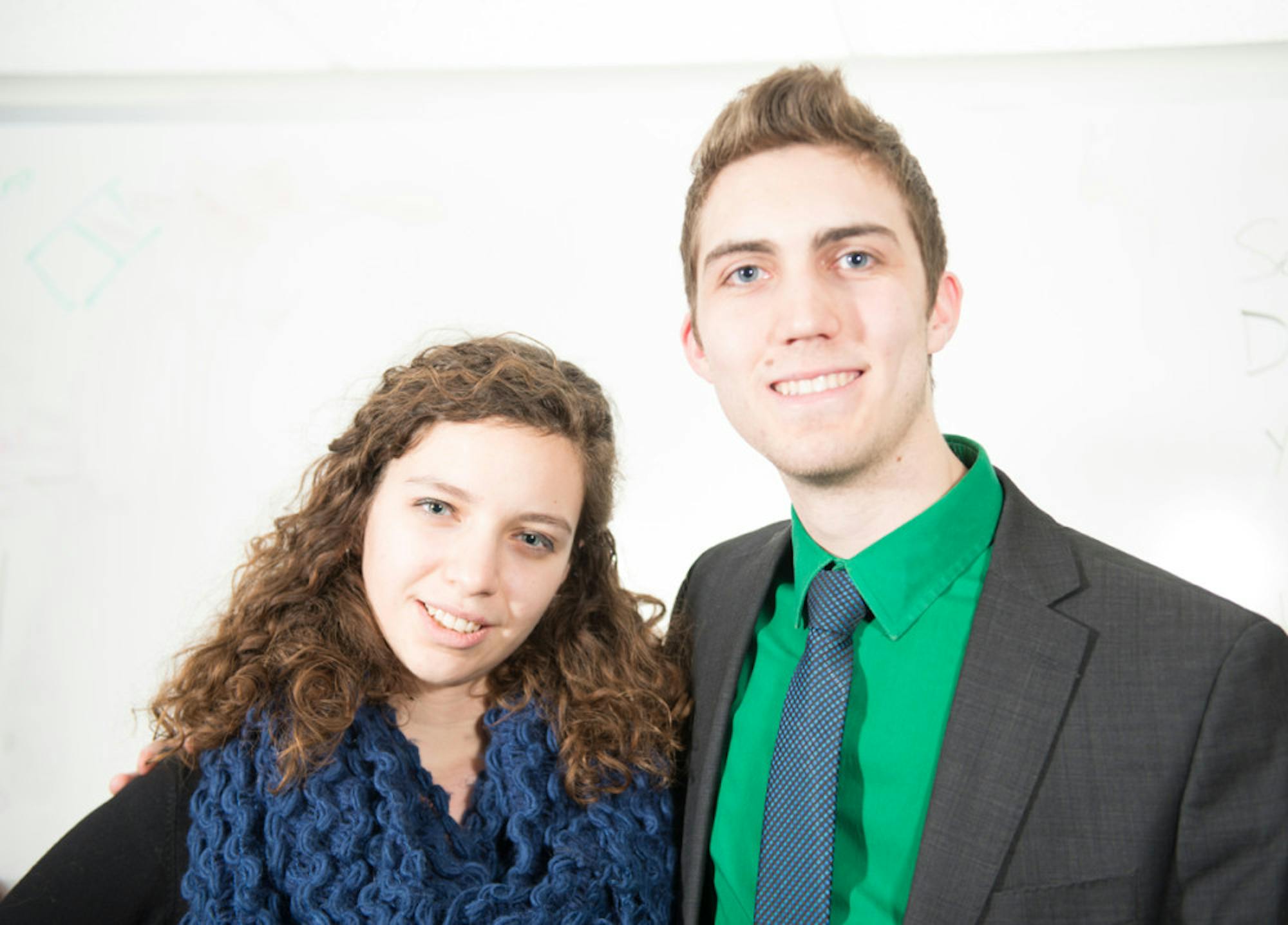Who are they: Student body presidential candidate Bryan Ricketts has spent the past two years as president of PrismND and served as a peer educator for the Gender Relations Center. He also served student government on a consulting basis with matters of sexual assault prevention and gender issues. The junior political science and chemical engineering dual-degree student lives in Duncan Hall and hails from Cambridge, Ohio.
Nidia Ruelas, a junior Lyons Hall resident, studies political science with a French supplementary major. The Orange County, California, native has served as vice chair of the Diversity Council and as a member of the gender issues and social concerns comittees of the 2013-14 administration.

First priority: Establishing lines of communication with the student body with a “comprehensive social media platform to meet students where they’re already at.” Ricketts mentioned an online platform to organize student input that he hopes to launch.
Top priority: Their platform repeatedly discusses the concept of “identity” and fostering ways for students to celebrate the various facets of their identities. Ricketts said this will begin by listening to students and hearing about what they think they need to succeed at the University. Their experiences dealing with student concerns in PrismND and on the Diversity Council will inform their initiatives, they said.
Best idea: Continuing the conversation about how socioeconomic status affects student life, and launching specific plans to address the issue. Socioeconomic status has often been overlooked in conversations about diversity and inclusion , but Ricketts/Ruelas propose panel discussions about hidden costs of attendance and mentorship opportunities for first-generation college students. Ruelas said she hopes to streamline sources of information about the resources and funding available to low income students.
Worst idea: While well-intentioned, Ricketts/Ruelas proposal of 24-hour accessiblity in the student government offices in lieu of office hours or other conversation forums will not be an effective way to foster dialogue with students. It would be better to commit to specific times when students can have their undivided attention instead of falling back on unstructured open time and assuming students will feel comfortable dropping in at all hours of the day. The open door policy needs more structure to be an effective way to connect with students.
Most feasible: Emphasizing dorm identity on campus with a series of events that will expand upon current celebrations of residence life. The proposed “Dorm Week,” the possibility of selling dorm merchandise in the bookstore and the suggestion to hold open houses align well with the University-wide emphasis on on-campus residence life.
Least feasible: While the proposed online forum to gather, organize and promptly respond to student feedback is an interesting idea, it won’t be as smooth as Ricketts/Ruelas make it sound. Participating students may be more likely to “upvote” jokes to the top of the priority list,instead of serious suggestions. It also seems unlikely that University administrators would be willing to participate in such a platform and engage in direct dialogue with students.
Notable quote: “I think [our leadership style] is about bringing together different points of view on campus and making sure that we bring those to the forefront, instead of working from the top down to the bottom.” — Ruelas
Fun facts: Ricketts was once featured on a campus fashion blog, and Ruelas is fluent in three languages.
Bottom line: Ricketts and Ruelas have experience working directly with students on big-picture concerns. They seem to have a difficult time articulating exactly what “identity” means to them and how that translates into specific initiatives, and many of their goals are more about discussing and exploring instead of doing. But their sensitivity to issues like socioeconomic status, gender, sexual assault and diversity suggest that they’re well prepared to make a lasting impact on campus culture.













